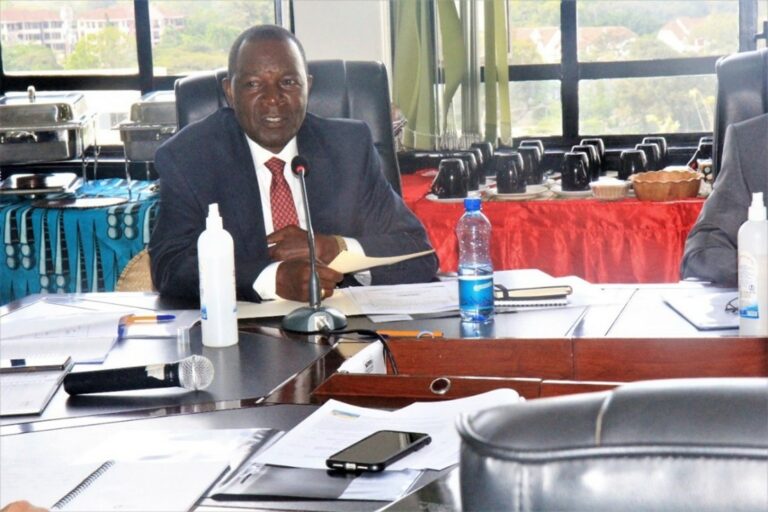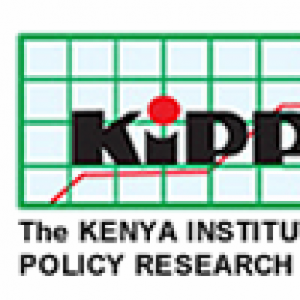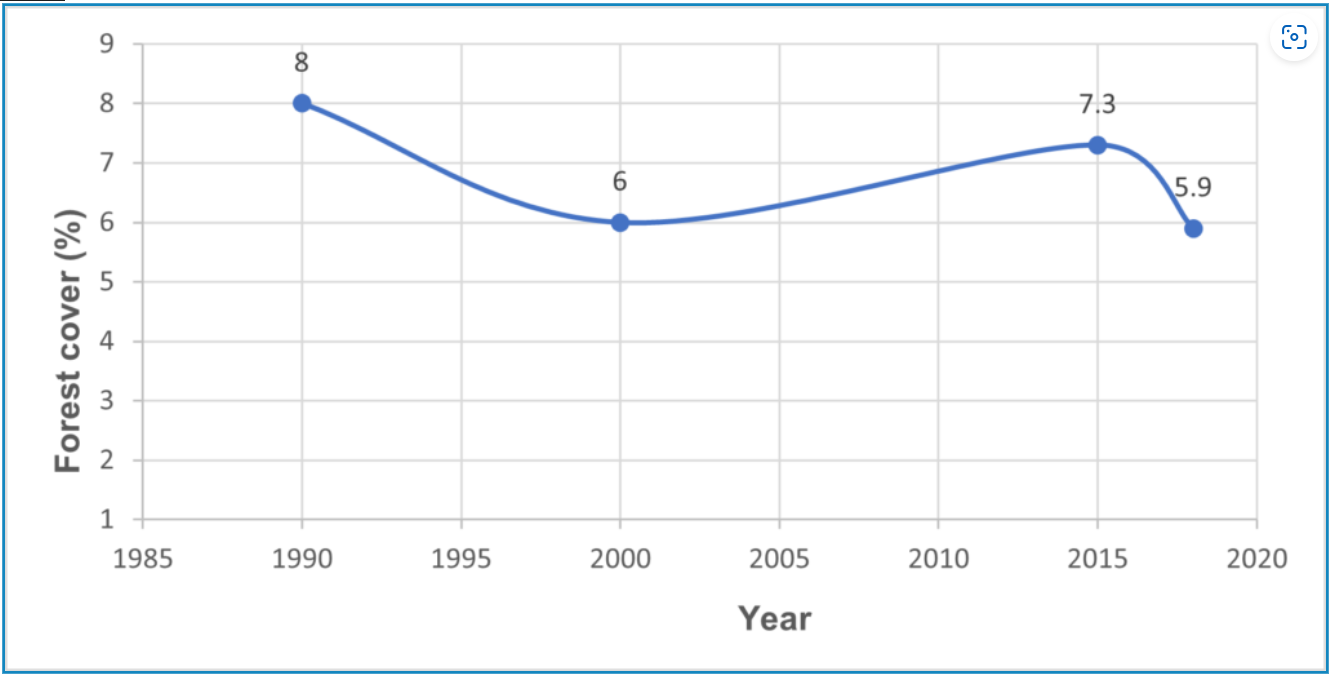KIPPRA, in collaboration with the International Food Policy Research Institute (IFPRI), held a policy seminar on 5th December 2022 to discuss Kenya National Policies and Strategies (NPS) to quantify the expected impacts of implementing the bottom-up economic plan on key socio-economic outcomes such as the food system, jobs, poverty, inequality and diets.

The seminar was held through a blended physical and virtual platform, which brought together participates from the public and private sector, the civil society and other stakeholders locally and internationally.
Among the guests who physically participated in the seminar include the Cabinet Secretary, National Treasury and Economic Planning Prof. Njuguna Ndung’u, and Principal Secretary, Ministry of Agriculture and Livestock Development Mr Phillip Kello Harsama. In her remarks, KIPPRA Executive Director Dr Rose Ngugi noted that the new government’s manifesto outlined aspirations to guide the development trajectory, adding that the seminar was meant to discuss the outcome of implementing the economic plan.
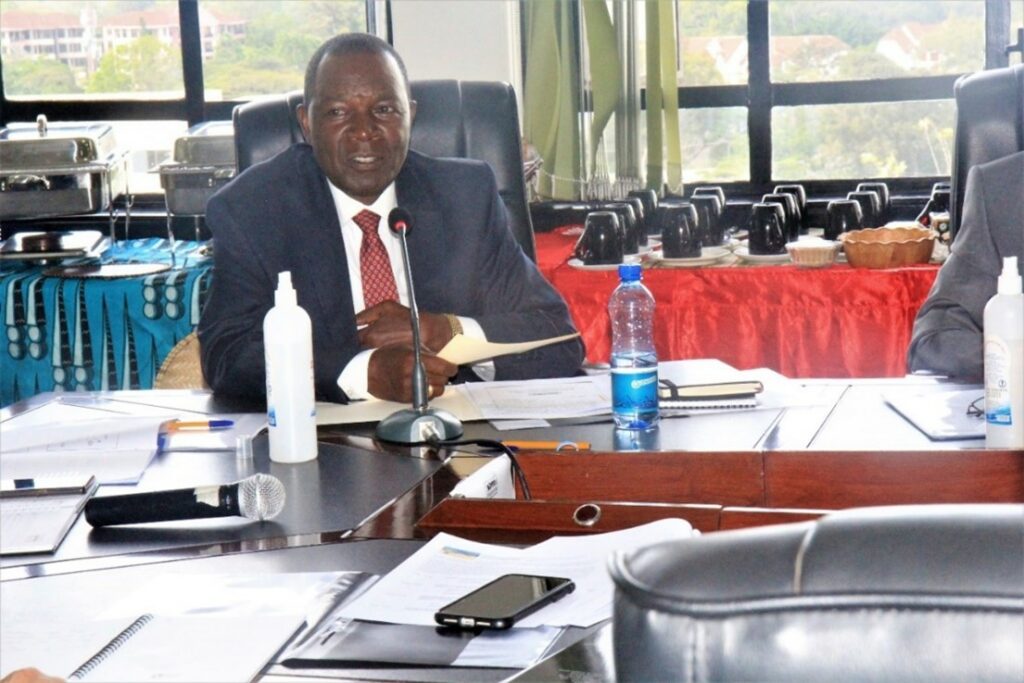
In his remarks, Prof. Ndung’u noted that the discussion was timely, adding that there was need to widely share the findings on the expected impact and social economic outcome of implementing the bottom-up approach.
The CS also discussed the effect of persistent shocks on economic activities and the need for actions to reverse the shocks. He added that climate change and food security remained major issues in Kenya, causing loss of life, poverty, inequality and a shift of a lot of resources to address the challenges.
Prof. Ndung’u explained the need to grow revenue, noting that although there has been massive expansion in public investment and infrastructure in the last seven, the sector was not taxable. The CS said there was need for state capacity and regulatory capabilities in order to protect and develop the market.
Dr Channing Arndt, Senior Director, Transformation Strategies at Consultative Group on International Agricultural Research (CGIAR) and Director, Environment and Production Technology Division, IFPRI, lauded the partnership with KIPPRA. He also indicated that CGIAR initiatives had the potential to increase income for most Kenyans as they focused on agriculture.
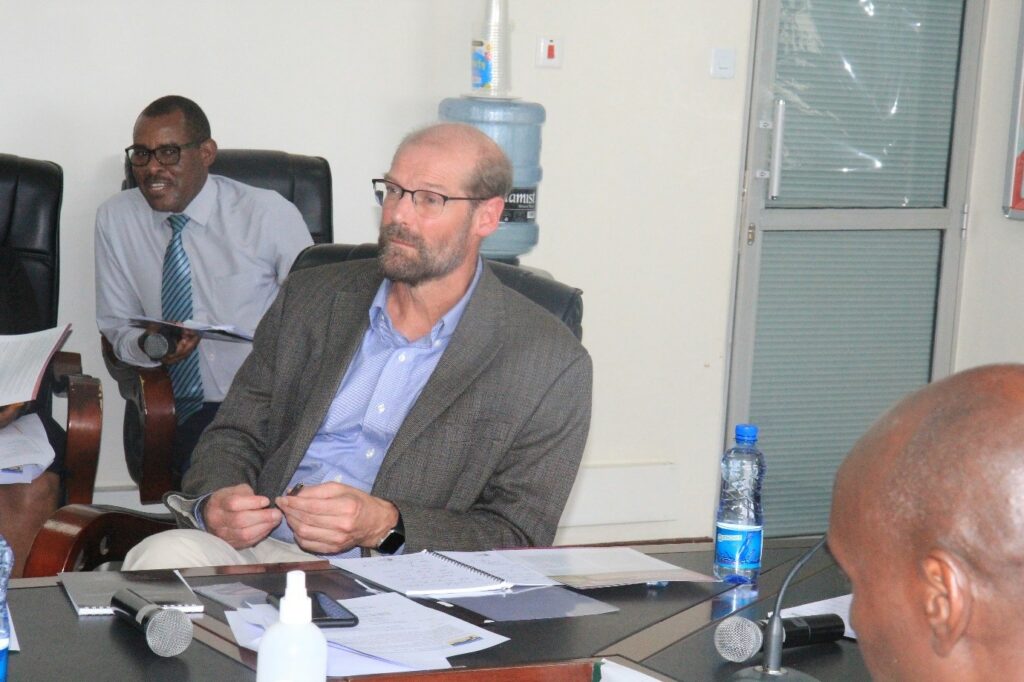
Mr Harsama spoke on behalf of the Cabinet Secretary Hon. Mithika Linturi and emphasized the importance of the seminar given that Kenya’s economic growth relied a lot on the agriculture sector. He added that the Government had identified agriculture, as the lead sector for economic transformation owing to its potential for quick returns on investment, as elaborated in the government manifesto plan.
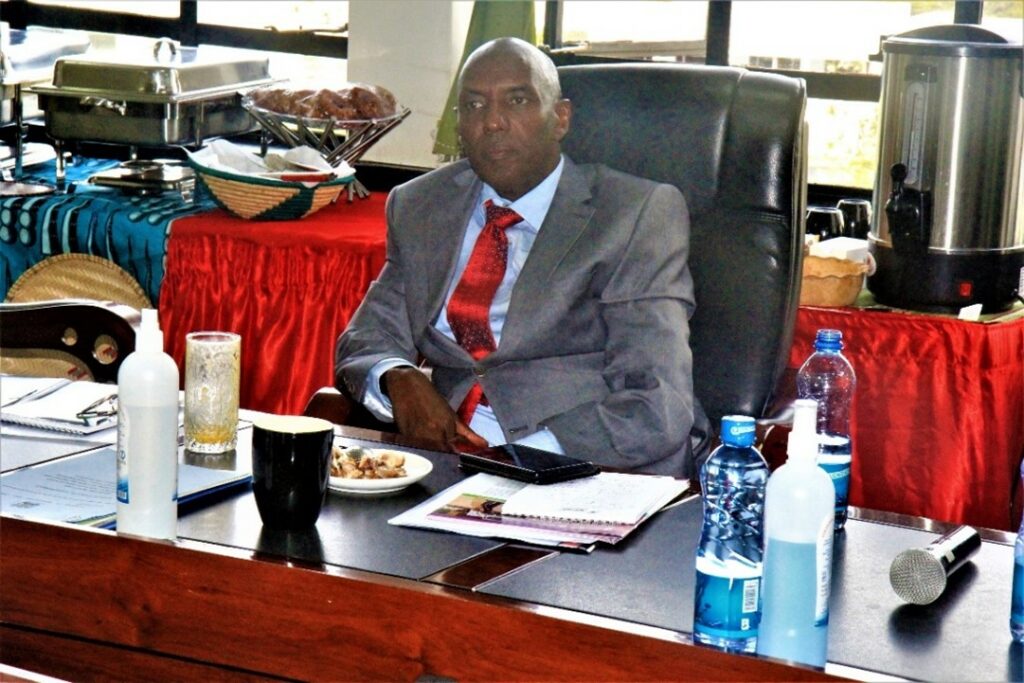
Dr James Thurlow from IFPRI said the seminar was meant to share the findings of the estimated impacts of implementing the bottom-up economic plan on food systems and social outcomes and to measure the impact of poverty on hunger and diet.
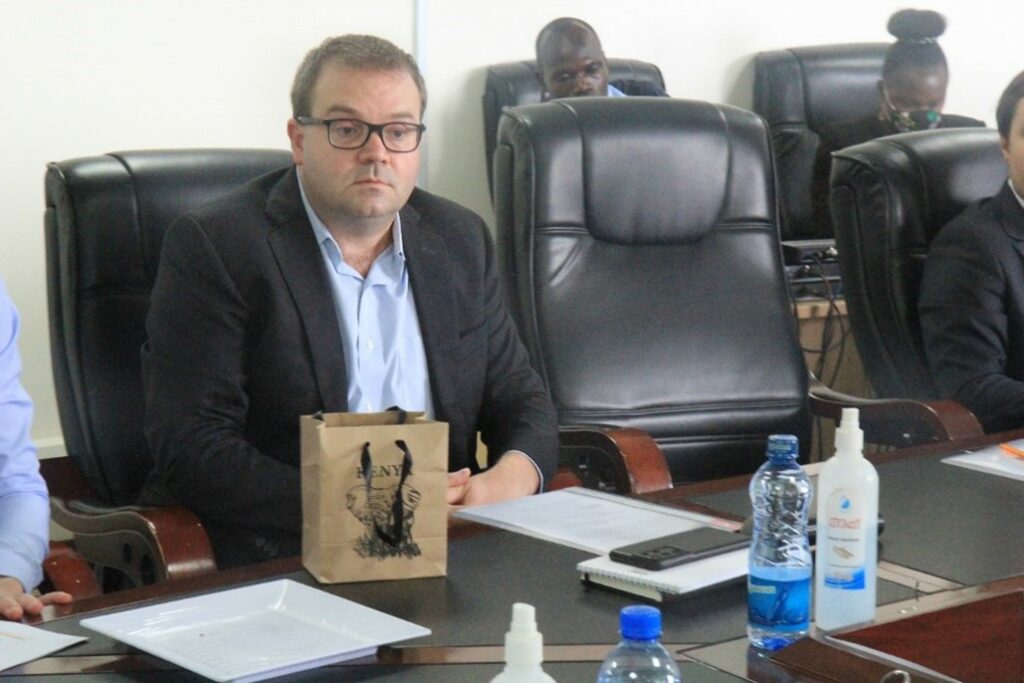
KIPPRA Senior Policy Mr Joshua Laichena, who was also the moderator, stated that the figures used in the presentation were preliminaries outlined in the new government’s manifesto, and the impact it would have on food systems and social outcomes. He gave an overview of Kenya’s macroeconomic environment, adding that the bottom-up economic plan priority programmes aim at bringing down the cost of living, eradicating hunger, creating jobs, expanding the tax base and improving foreign exchange balance.
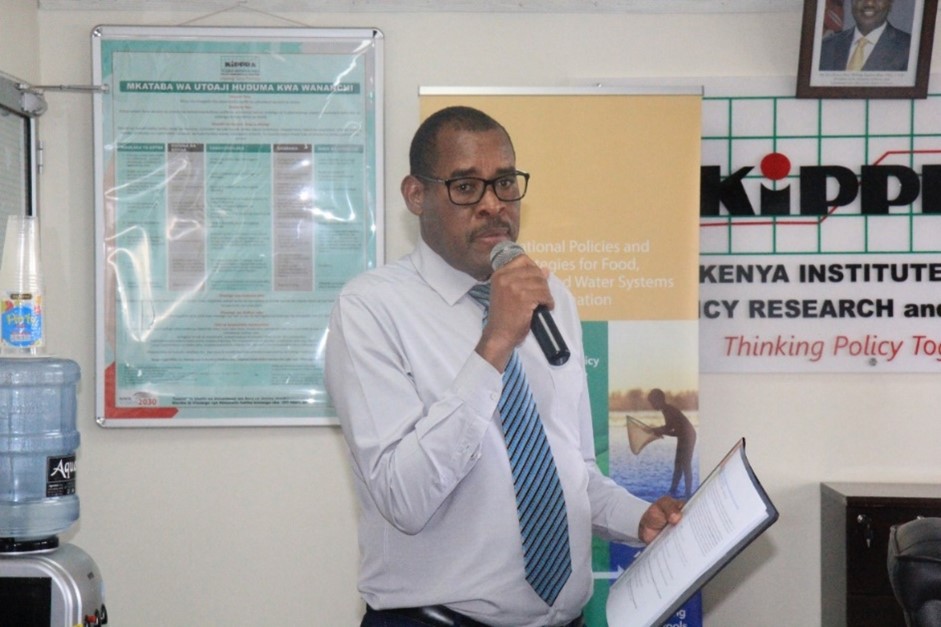
He added that the new policies and programmes in the bottom-up economic plan provide research-based evidence to support decision makers in the design and implementation process and ensuring that the market works for the poor.
The seminar presented recommendations for the new NPS policy brief on “Transforming Food Systems in Kenya for a new Era of Growth and Prosperity”.



